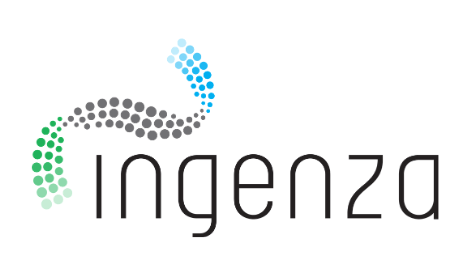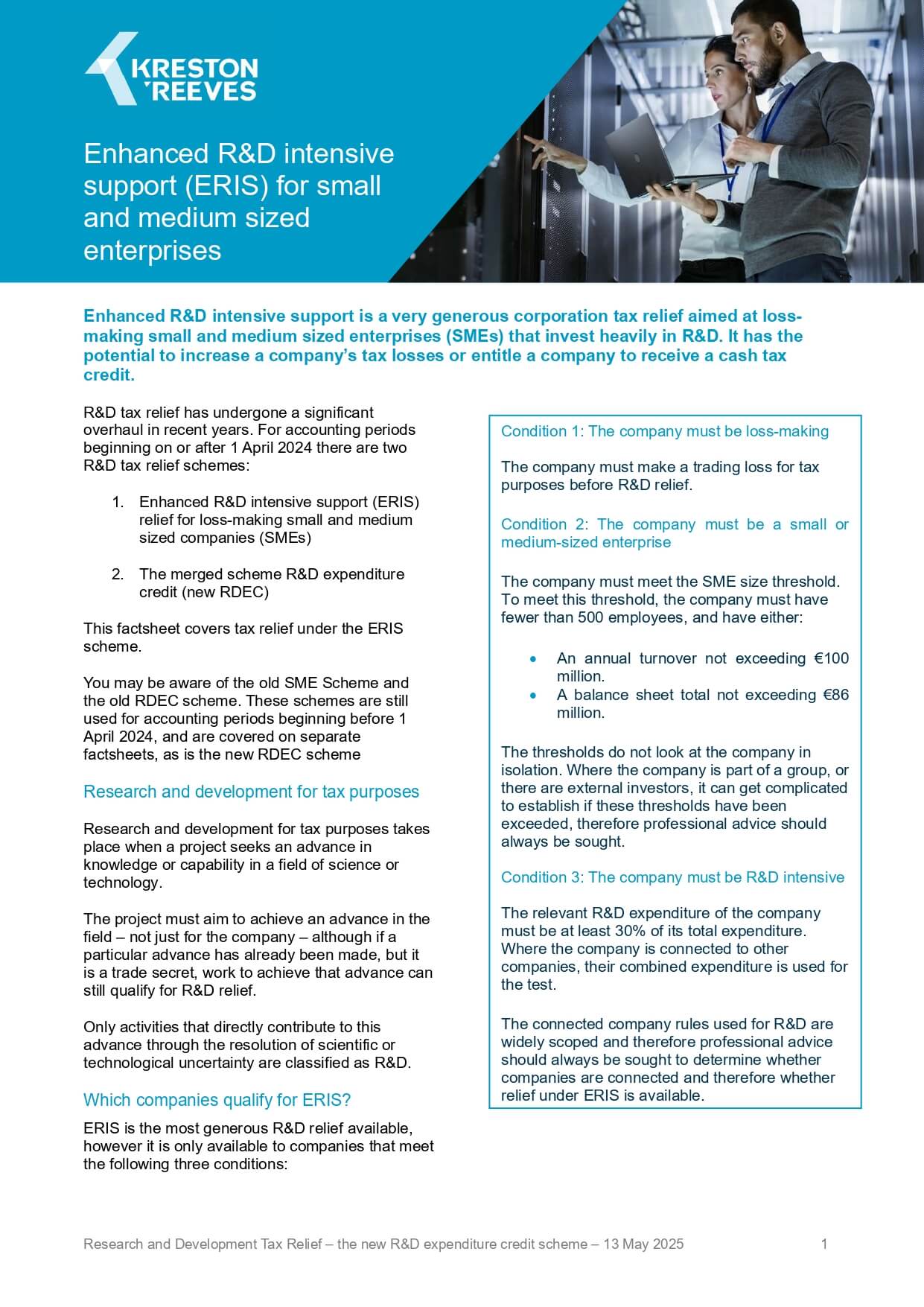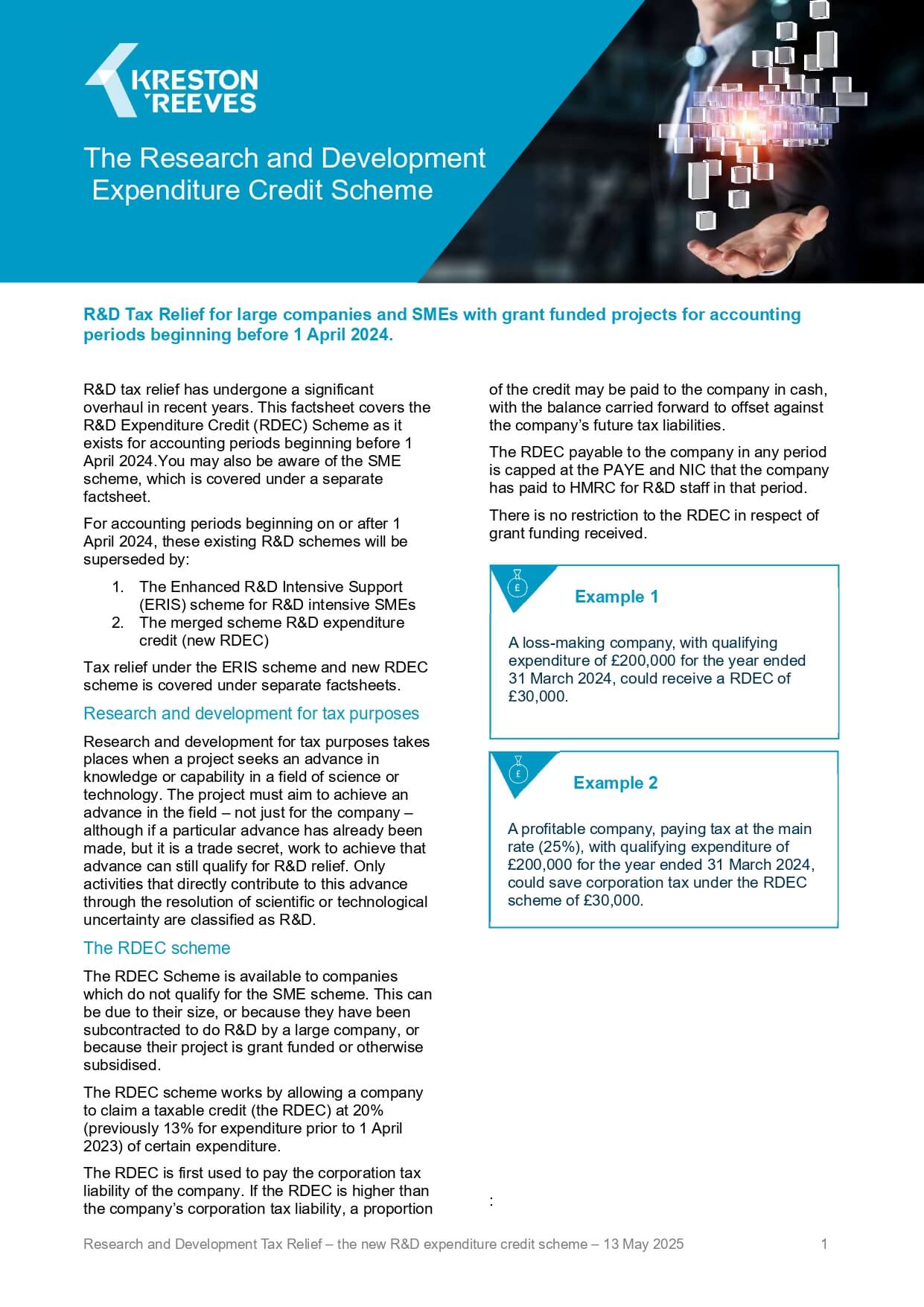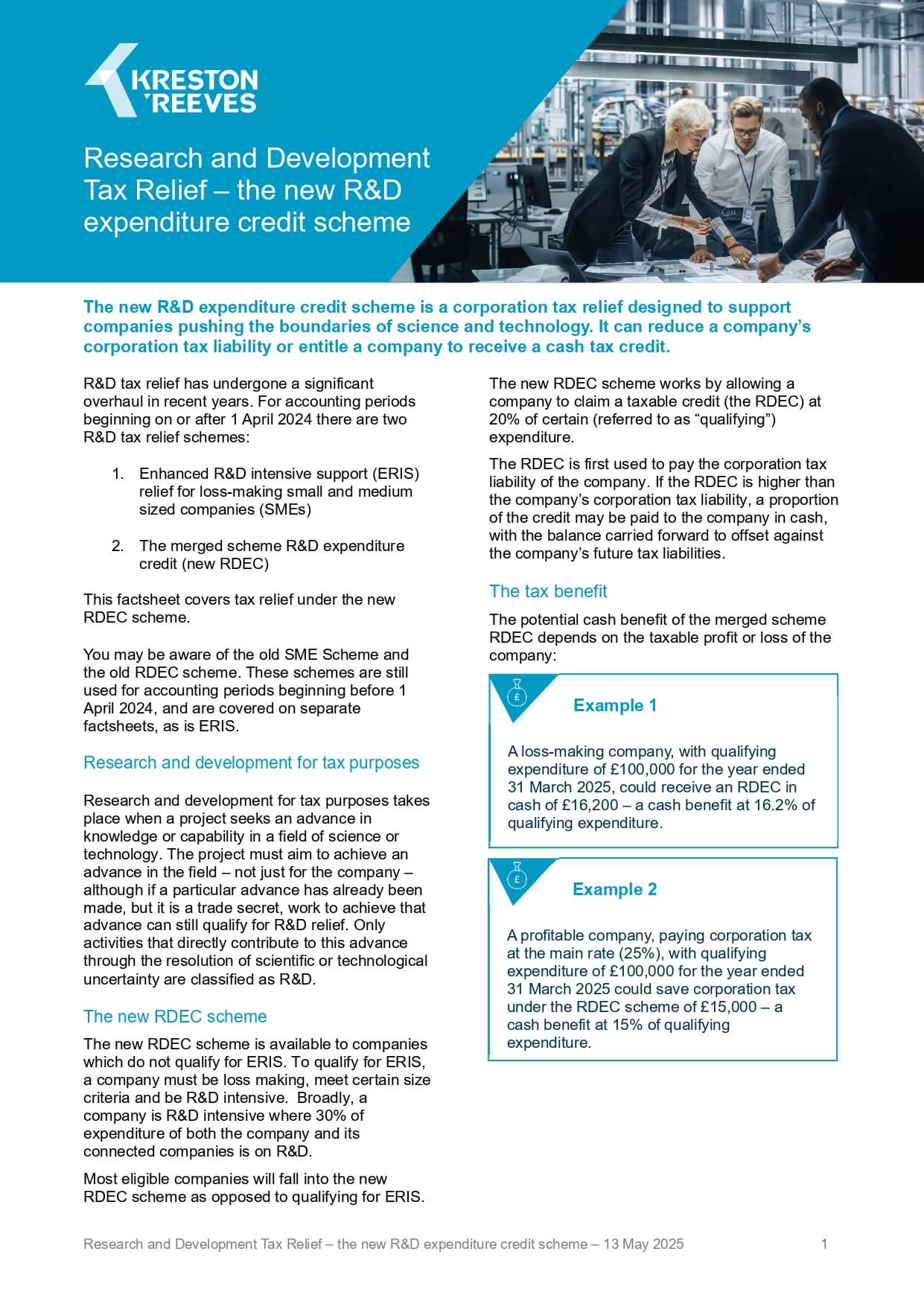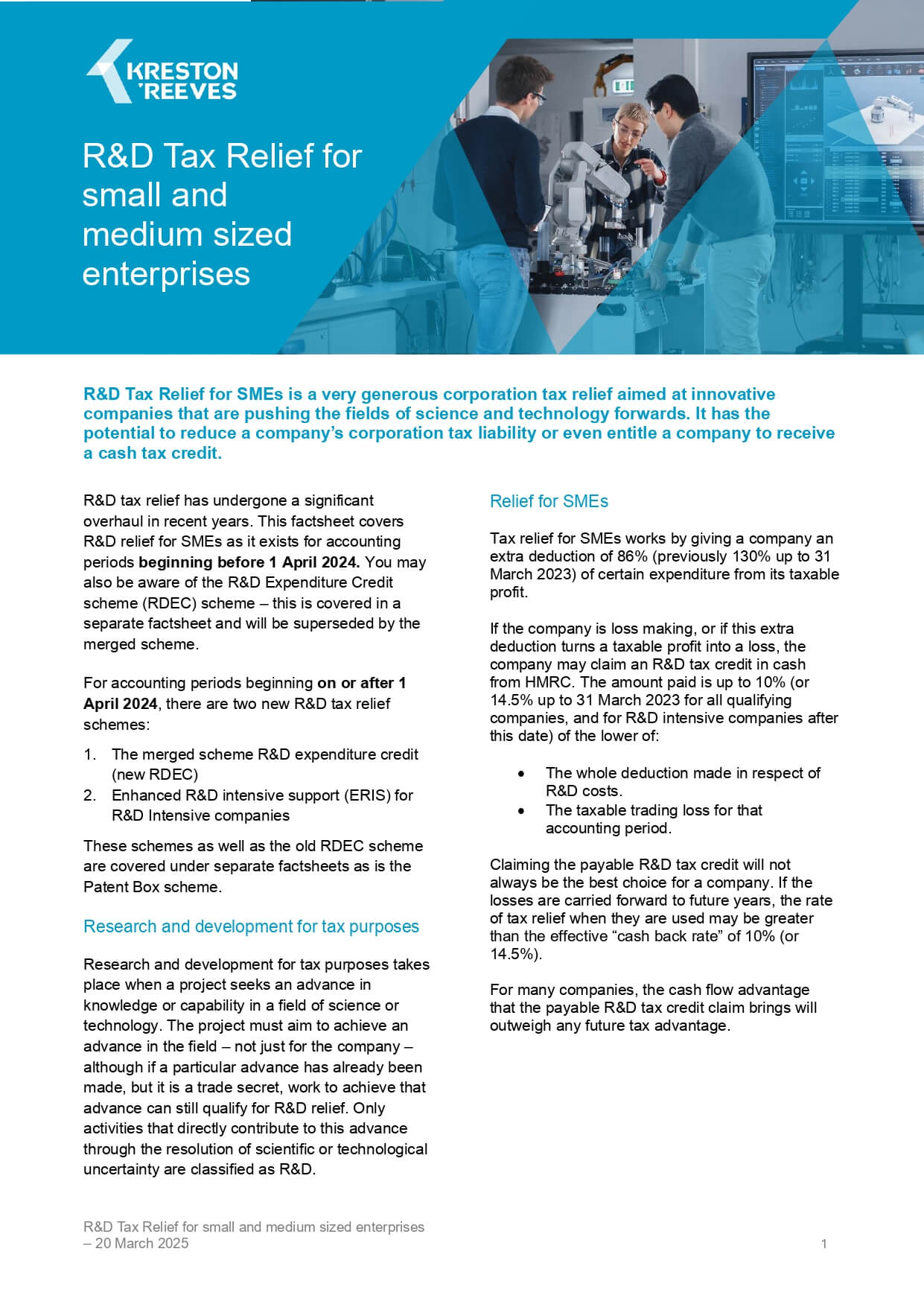The SME scheme
Broadly this is available to small and medium-sized companies. Where claimants undertake qualifying activities, they may claim an enhanced deduction of 186% of their qualifying expenditure on or after 1 April 2023 (previously 230%).
The enhanced deduction can reduce taxable profits or even create and enhance tax losses. For profitable companies, this can mean that the SME tax credits provide an effective cash benefit of 21.5p for every £1 of qualifying expenditure (86% x 25%), assuming the company pays Corporation Tax at the main rate.
For loss-making companies, the tax R&D loss may be surrendered in exchange for a repayable tax credit worth 10%. This can be worth up to 18.6p for every £1 of qualifying expenditure (186% x 10%). However, for ‘R&D intensive’ companies, which broadly spend 40% of their total expenditure on R&D, losses can be exchanged at a rate of 14.5%. This can be worth 26.97p for every £1 of qualifying expenditure (186% x 14.5%).
R&D expenditure credits (RDEC)
A company may claim RDEC where it does not qualify as an SME. In certain circumstances, SMEs may be required to claim under RDEC where a project does not meet certain SME scheme criteria.
Under RDEC, a company can claim a tax credit of 20% of qualifying expenditure incurred on or after 1 April 2023 (previously 13%). This is accounted for as an above the line credit and therefore increases a company’s profit before tax. For profitable companies, this can mean that RDEC can provide an effective cash benefit of 15p for every £1 of qualifying expenditure (20% x (100% – 25%)).
The credit can be offset against the corporation tax liability of the company, offset against other liabilities, or potentially repaid to the claimant.
Whether your claim falls under the SME or RDEC scheme, we support a fast track R&D claims approach to get you the financial benefit sooner.




















